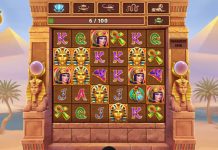Mark O’Hare, Head of Business Development at The Unit, details how the Brazilian gambling industry is preparing for the well-awaited online market launch, suggesting that crash games could be a key component of the nation’s regulated space.
Brazil is leading a regional boom as a number of Latin American markets have decided to open up to the betting industry in recent years. With a population of over 200 million, Brazil is one of the world’s top 10 betting markets and is poised for a boom period.
On December 21, 2023, Brazil’s chamber of deputies approved Bill 3626/2023 to regulate sports betting. Just over a week later, on December 30, Law No. 14790 was published into Brazilian law and implementation is expected to take place before the end of 2024.
It’s already a crowded market and with new entrants ready to join, innovation could be the name of the game when it comes to acquiring and retaining Brazilian players. With that in mind, we have taken a look at two products that could be poised to make a big impact as the region becomes regulated.
Crash Games
An innovative product to bring to market and we feel has great potential in the Brazilian market. Crash games bring a sports betting feel to a casino game with cash out options available to the player. Brazil’s new regulatory framework clearly identifies and allows crash games to be included in operators’ offerings.
The unfolding phenomenon of crash games has been spearheaded by Spribe, whose smash-hit sensation, Aviator, perhaps provided the prime mover in this must-have igaming domain. This niche segment has almost become its own mini-vertical.
“this fast-game format is no passing fad and it will thrive”
Mark O’Hare, Head of Business Development at The Unit
Aviator was a breakthrough socially-engaging game consisting of an increasing curve (matching a plane’s flight path) that can ‘crash’ at any time. When a round begins, a scale of multiplier starts growing and players must “cashout” before the plane flies away.
Originating in the video-gaming industry, this format initially became increasingly popular in digital and crypto casinos (where risk appetite is strong) due to its simplicity and exciting user experience, before breaking out into the mainstream of emerging markets.
Self-evidently, the innovation and popularity behind crash games reside in a totally different user experience to other games inasmuch as it is interactive. By that I mean, players are active participants and have to make a decision and cash out at the right time. This offers a feeling of control and provides a mixed betting and video-slot experience which has appeals to all demographics but particularly millennials.
These games combine engaging aspects of video games and social gaming alongside ‘smart’ gamification features, making for a deeper, more immersive journey. Indeed, the shared communal aspect of watching a crash game unfold and deciding or debating the optimal time to cashout generates vicarious kicks and excitement for anyone watching, enhancing the overall experience. Elsewhere, well-curated gamification features, such as live leaderboards and rewards, drive digital dwell-time and promote friendly competition.
This fast-game format is no passing fad and it will thrive, not merely survive, thanks to its enhanced anticipatory thrills which connect with audiences crying out for something different from your traditional slot titles. Many of the sector’s top aggregators and game-distributors offer over 15 crash games providers on their respective platforms, so the opportunities and demand seem pretty relentless.
Above all, crash games are excelling in Latin American and African markets where small-stakes-big-win scenarios abound, appealing to customers who effectively prefer to play on lottery-style propositions. That can apply to sportsbook football accumulators (where the average number of selections is 10, with an average stake of less than a euro) to the growing jackpots of crash games whose intuitive and exciting gameplay adds another key component to their pure playability.
By combining video-game-level visuals with the latest maths models for improved gameplay and varying volatility where needed, this fresh format of risk is here to stay in the digital gaming space, and also offers cross-sell opportunities between sportsbook and igaming, particularly when it comes to educating players as to the merits of “cashout” functionality, or introducing them to more ‘snackable’ short-course sports like horse racing.
More anecdotally, we’re told that crash games represent roughly 50 per cent of all casino revenues in Brazil. Enough said!
Look Ahead To 2024 And Beyond
The introduction and implementation of a regulatory framework is likely to have a couple of impacts on the Brazilian market. There’s ostensibly no limit on the total number of licences that can be issued.
An operator must have a Brazilian party as a shareholder holding at least 20 per cent of the legal entity’s share capital so the rush to market could be intense. The arliest expected date for issuing new licences is projected at October 2024. Some of The Unit’s predictions for the year ahead:
- Major global operators will look to enter the market. Expect US sportsbooks and others to attack the market. Local operators may struggle to cope with new regulations due to financing and legal requirements. This could result in an increase in mergers and acquisition for a) global operators to acquire a foothold in the market and b) local operators raise much-needed funds to compete and maintain their market share.
There are almost 500 operators live in the unregulated market in Brazil at the moment while only 130 operators outlined their intention to apply for licences when the regulation was announced.
Horse Racing
Brazil is known as a sports mad country and early signs show that sports betting will have a significant role to play as the market becomes regulated and operators align and improve their offering.
We have mentioned before that innovation and new game types could be key in establishing a market share in the Brazilian market and horse racing is one area that we suggest should be investigated further.
In many established markets, horse racing is one of, if not the most popular sport to bet on, especially when it comes to its customer-retention powers. It has a rich history in the UK, US and Asian countries but does not seem to have reached the same level of interest in LatAm.
However, Brazil has produced some renowned jockeys and trainers that are plying their trade around the world (Joao Moreira and Silvestre de Sousa have won multiple jockeys’ championships in Hong Kong and the UK respectively, while Diego Dias is making waves as a trainer in Ireland) and there is a devoted group who follow the exploits of their compatriots on foreign courses and that will help the sport grow in Brazil.
In our view, there is huge potential for horse racing in the local market. While racing is an international sport, we see value in providing tailored products for Brazilian customers.
















